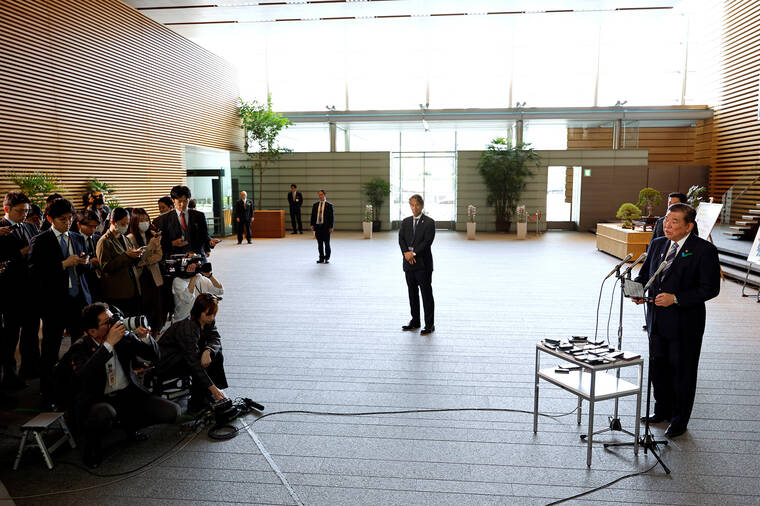Trump hails ‘big progress’ after jumping into Japan tariff talks
WASHINGTON (Reuters) — President Donald Trump said there was “big progress” when he made the surprise move on Wednesday to negotiate directly with a Japanese trade delegation in Washington about the barrage of tariffs he has imposed on global imports.
Japan is one of the first countries to formally kick off negotiations, an early test of Washington’s willingness to cede ground on the duties that have roiled financial markets and stoked fear of recession.
ADVERTISING
“A Great Honor to have just met with the Japanese Delegation on Trade. Big Progress!” Trump said in a social media message that contained no details of the discussions.
Opposite Trump for Wednesday’s talks was Ryosei Akazawa, a confidant of Japanese Prime Minister Shigeru Ishiba who only took up his first cabinet post late last year in the relatively junior position of economic revitalisation minister.
Tokyo had not expected Trump to participate in what it viewed as a preliminary fact-finding mission, according to sources familiar with Tokyo’s planning, and had been hoping to limit the scope of discussions to trade and investment matters.
Speaking to reporters later, Akazawa gave little away about the details of the discussions but said the parties had agreed to hold a second meeting later this month and that Trump had said getting a deal with Japan was a “top priority”.
Exchange rates, which the Trump administration has said Japan and others manipulate to get a trade advantage, were not part of the talks, he added.
The dollar briefly strengthened as much as 0.54% against the yen after Akazawa’s remarks on forex.
U.S. Treasury Secretary Scott Bessent and Commerce Secretary Howard Lutnick also participated along with other officials.
Japan’s prime minister, who has previously said he won’t rush to reach a deal and does not plan to make big concessions, sounded a more cautious tone speaking to reporters later in Tokyo.
“Of course, the negotiations will not be easy going forward, but President Trump has stated that he wants to give top priority to the talks with Japan,” Ishiba said.
Italian Prime Minister Giorgia Meloni heads to the White House on Thursday to discuss tariffs imposed on the European Union with Trump, while Bessent has invited South Korea’s finance minister to Washington for talks next week.
Japan has been hit with 24% levies on its exports to the United States although these rates have, like most of Trump’s tariffs, been paused for 90 days. But a 10% universal rate remains in place as does a 25% duty for cars, a mainstay of Japan’s export-reliant economy.
Bessent has said there is a “first mover advantage” given Washington has said more than 75 countries have requested talks since Trump announced sweeping duties on dozens of countries – both friend and foe – earlier this month.
Trump earlier said the issue of how much Tokyo pays towards hosting U.S. troops in Japan, the biggest U.S. overseas deployment, would also be discussed in Wednesday’s meeting.
Akazawa declined to comment on the matter, adding only that he strongly requested a revocation of the tariffs and that he believed Washington wanted to secure a deal in the 90-day window.
Trump has long complained about the U.S. trade deficit with Japan and other countries, saying U.S. businesses have been disadvantaged by trade practices and intentional efforts by other countries to maintain weak currencies.
Tokyo denies it manipulates its yen currency to gain advantage.
Bessent had previously said he is hoping to strike deals that would cover tariffs, non-tariff barriers and exchange rates, though Tokyo had lobbied to keep the latter separate.
Possible Japanese investment in a multi-billion dollar gas project in Alaska could also feature, Bessent has said.
Japan hopes that pledges to expand investment in the United States will help to convince the U.S. that the two countries can achieve a “win-win” situation without tariffs, Akazawa said ahead of his departure.





